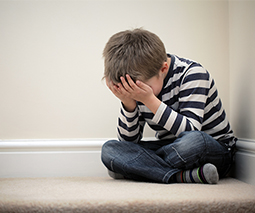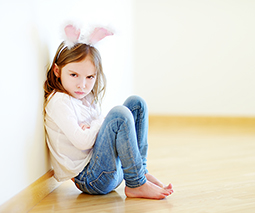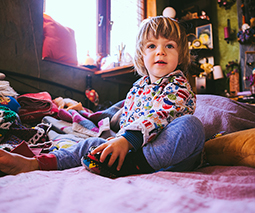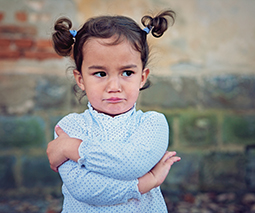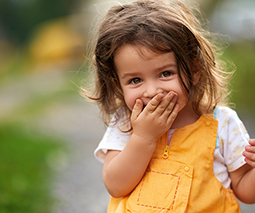“What happened to my angel?” – Your difficult toddler’s behaviour explained

A bright, chirpy voice greets you at the crack of dawn with a, “wake up, morning time”. You crack open an eye to a little ray of sunshine who’s eager to begin their day. But from here things seem to take a nosedive, as your once easy-going child suddenly turns obstinate, every activity becoming a battle of wills.
“Come on little man, time to get dressed,” you say in your happy voice, hoping that this will bring about a positive result. “No” is the immediate response. Half an hour later, having used all the tricks in your how-to-get-my-child-to-comply-without-tears handbook, you wrangle your child into his clothes. Then it’s on to breakfast. Your child, who once ate almost anything that you gave him, is now down to an exceedingly small list of things he will happily eat.
On one hand, this makes things easy as you don’t have to think about what to serve him, but on the other hand, you are beginning to worry that he might not be getting the nutrition a toddler needs to keep healthy. And so the day continues with even the simplest of interactions seeming like you’ve run a marathon to complete them.
Read more about toddler behaviour:
- 7 REALLY annoying toddler behaviours that are actually pretty important
- 7 things that might be behind your child’s bad behaviour
- Push off: How to teach your toddler not to push or hurt other children
What happened to my little angel?
In order to answer that question, it might be good to look at what’s happening for your child in this stage of their development. According to Erikson, a prominent psychologist who divided up life into different stages of tasks to be achieved, the ages of 2 to 3.5 is marked by the need to develop autonomy. It’s an age of acquiring new skills, such as language. A child of this age needs to know that they can make choices and that these choices will lead to an outcome. Failure to do so leaves them with a sense of inferiority, or shame.
It’s an age of learning self-control and pride in self, an age of saying “I can do it” and finding out that they can. So more times than not, it’s also an age of pushing boundaries and limits. Toddlers push up against a trusted carer in order to see what they are capable of, but also to see what effect they have on the world around them and the people in it. Keeping this in mind can sometimes help to reframe our child from someone who is deliberately setting out to make life difficult, to someone who is trying to understand their place in the world. Remembering this in mind can help us remain patient when responding to our little one’s behaviour.
How do we best respond to this stage of development?
It’s a time of picking your battles and prioritising the important values you want to instil in your child. Every family unit will be different in what they consider important values – for me it was keeping each other safe, and being respectful and considerate of others.
While your child is seeking autonomy, it’s your responsibility to provide an opportunity for him to practise this in a safe and non-overwhelming way, e.g. giving a choice of a couple of different outfits to wear, rather than a whole cupboard’s worth or no choice at all.
It’s also an age of knowing that practically everything is going to take extra time, so allowing for that, and a time of coming up with creative games or ideas to help encourage your child to do things that might not be their first idea of fun, like having a competition to see who can put away the most toys when it’s time to pack away.
What other reasons cause little angels to turn into devils?
Tiredness and hunger
Could your child be tired or hungry? Tiredness, hunger, and sugary foods or additives in foods can lead to your child’s system going out of whack, destabilising their body’s ability to calm, and leading to hyperarousal. Tiredness and hunger can also affect their body’s blood sugar levels leading to aggression, anxiety or depression. If blood sugar levels fall too far this can lead to the body releasing cortisol and epinephrine, stress hormones, to try and raise blood sugar levels, but strong activation of these hormones can lead to anxiety, agitation, aggression, feelings of panic and confusion. Low blood sugar levels deprive the brain of glucose which has an effect similar to the influence of alcohol.
A still-developing brain
As parents, we sometimes forget that our child’s brain is still developing. In younger children, the neural links aren’t yet there between the emotional and basic instinct parts of the brain, and the thinking parts of the brain. If a child has been under stress, the thinking part of the brain can be rendered inaccessible for a time. In these cases, you need to help your child calm first before any reasoning can be done.
Big feelings
Sometimes children behave badly because they are discharging tension from a very painful emotion. A big painful feeling releases stress chemicals in a child’s brain and body. A child may not have the words to express the emotions they are feeling, so vents with a scream/shout. By helping your child with their bigger feelings you can help them develop the neural pathways essential for self-regulation connecting the thinking parts of their brains to the emotional and basic instinct parts of their brains. Over time, these networks will naturally start to control those primitive impulses of rage, fear, or distress, enabling him to think about his feelings rather than just discharging them in some primitive action.
Parental stress
Another thing to consider is that your child might be picking up on your stress. A child’s stress is often a barometer of parental stress, depression, anger or grief. Parenting is one of the most stressful jobs there is, and the more stressed you are, the more likely your child is to behave badly. The right prefrontal part of a child’s brain can pick up emotional atmospheres in milliseconds. They are especially in tune with their main caregivers and are affected both emotionally and often physically by stress in the family. If you are relaxed, chances are your child will be calm, if the home atmosphere is tense then your child will follow suit. Looking after yourself emotionally, helping to reduce your own stress levels, will have a flow-on effect on your child.
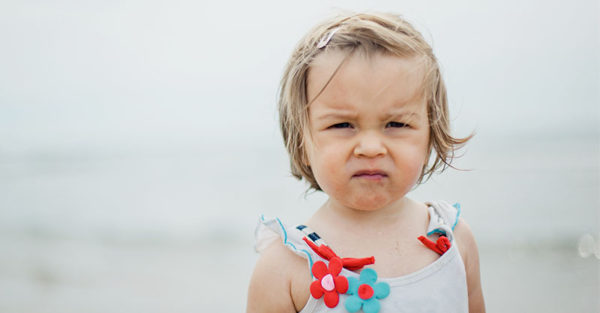
What you can do about it
So those are some reasons why your child may be being difficult. What are some general things that you can do to help?
Take your child’s distress seriously: Recognise how your child is experiencing an event, as it might be different from how you are experiencing it. Find age-appropriate words for your child’s distress. Show him you have understood what’s happening for him by telling him in a language he can understand.
Meet your child’s feelings with the right voice and energy: Use an energised rather than a flat voice, meet enthusiasm and delight with the same, meet fury with the same intensity without the heat, e.g. “I can see that you are very angry with me, not just a little.”
Be calm and offer clear boundaries: A key factor in your ability to manage your child’s intense arousal states is managing your own. Be there for your child’s feelings but avoid burdening them with your own. For example, it’s not helpful to say to your child, “I can’t deal with this right now, can’t you see how tired I am?” Offer clear boundaries by saying no firmly but calmly when needed. Children need secure boundaries to feel safe. Think about your important values when creating boundaries, and stick to them. Don’t make promises you can’t keep, or set up consequences that you don’t intend to keep.
Use physical soothing: Respond to your distressed child with calm, physical soothing. This releases calming chemicals into their systems to help them stabilise their emotions. If you aren’t feeling calm enough to do this then find another caring adult to do so, or step back, calm yourself, and then calm him.
It can be hard when your angel turns devil but gaining insight into the world from your toddler’s perspective and working to remove or negate other areas that might be adversely affecting them can go a long way towards not just surviving but thriving in this stage of your child’s development.
Kathy Stirrup, alongside her daughter Alexandra Newmarch, runs Phoenix Place, a counselling, play therapy and mothercraft agency in the south of Sydney. Kathy has trained as a mothercraft nurse, child care worker, counsellor and play therapist, and has had over 30 years of experience working with children and their families.

